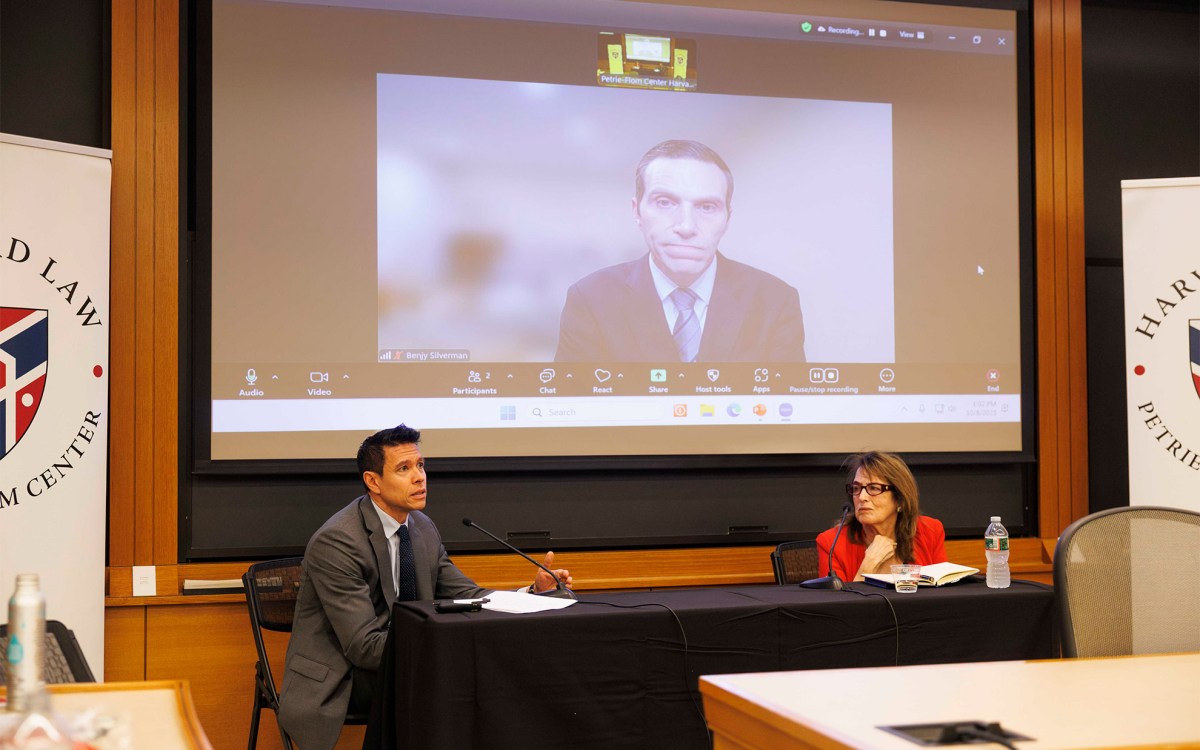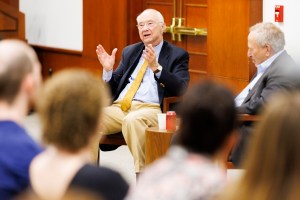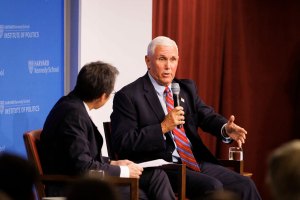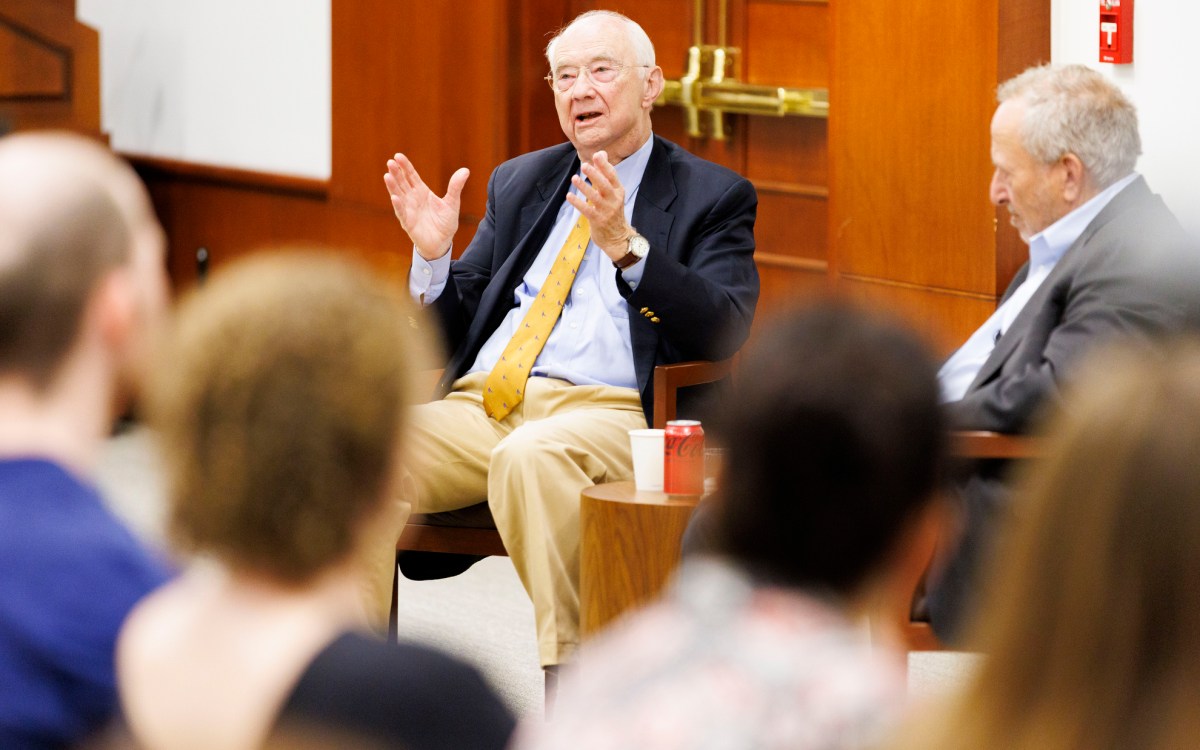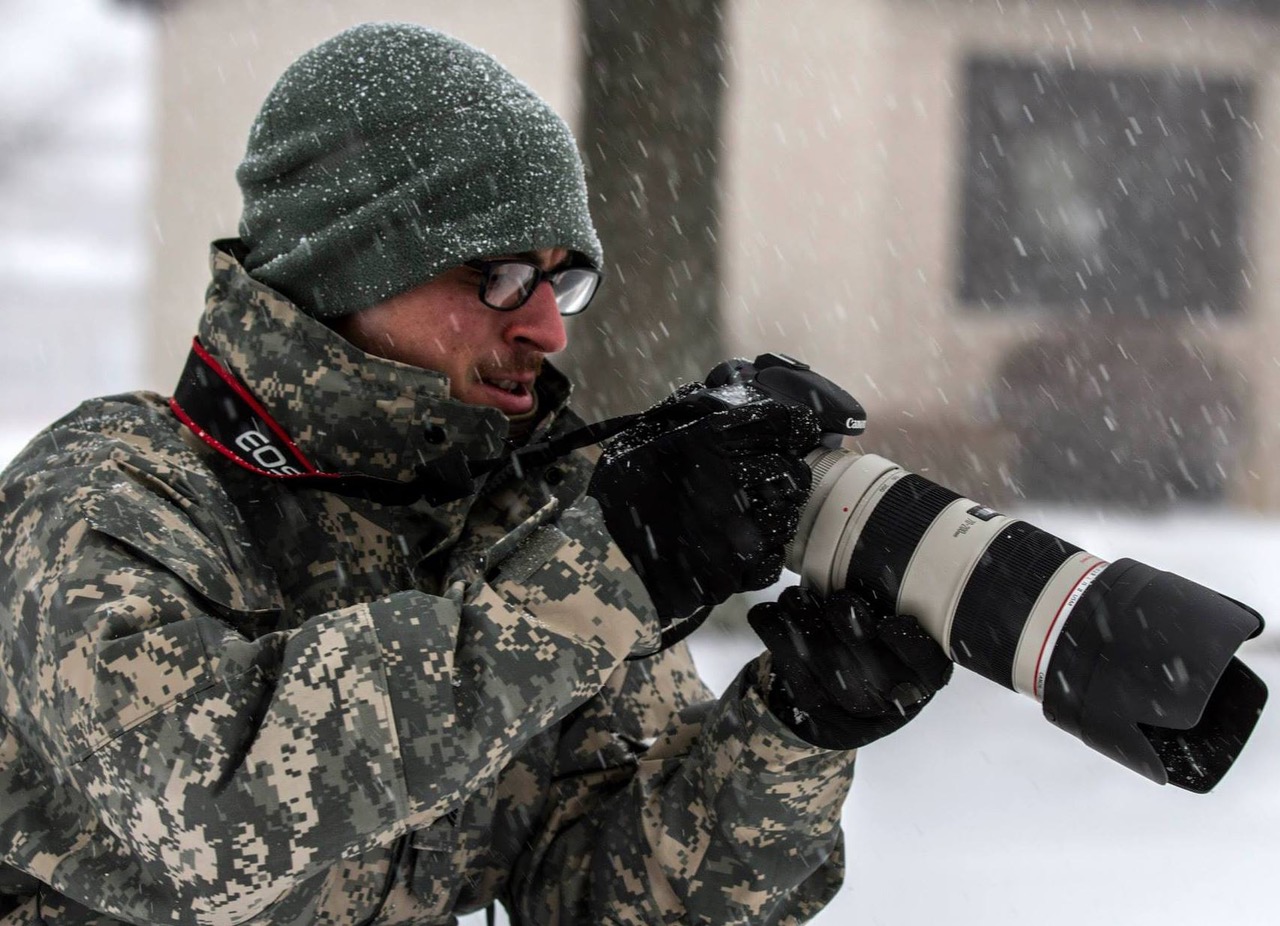
Tucceri on assignment as a member of the Massachusetts Army National Guard.
Photo courtesy of Kenneth Tucceri
Risks and Rewards
“I wanted to really make a difference.”
The trajectory of Kenneth Tucceri’s, A.L.M. ’21, career is nothing like a straight line. But as he recounts it, what emerges is a map that follows his winding path through sometimes surprising turns across the nation and the world, to a goal of making a difference by inspiring others to find their own way.
In his current day job he serves in the Massachusetts Army National Guard as a communications specialist, telling the stories of his fellow “citizen soldiers” — which right now involves their work administering COVID-19 tests in hard-hit areas. He is also pursuing a degree in museum studies at Harvard Extension School as a way to marry all of his training and experience.
“I wanted to use my passion and skills toward my service,” he said. “I didn’t want to just join and serve in a way that I could be proud, but I wanted to really make a difference.”
But this isn’t where the Tewksbury native’s story began, nor where it ends. First came a bachelor’s degree in fine arts from the University of Massachusetts Lowell, followed by short stints in corporate America and sales.
In 2008, Tucceri quit his job and set out to hike the Appalachian Trail, an experience he credits with defining his career path. He realized that in his life he was looking for more than just a job but a way to give back.
So Tucceri enlisted in the Florida National Guard. It was after transferring from his unit in Florida to one in his home state to attend Harvard Extension School that Tucceri decided to sign up for a two-year stint in the Peace Corps.
And that’s how he ended up teaching English and life skills in Lesotho, a small, landlocked kingdom inside South Africa. It was a job he was good at and loved.
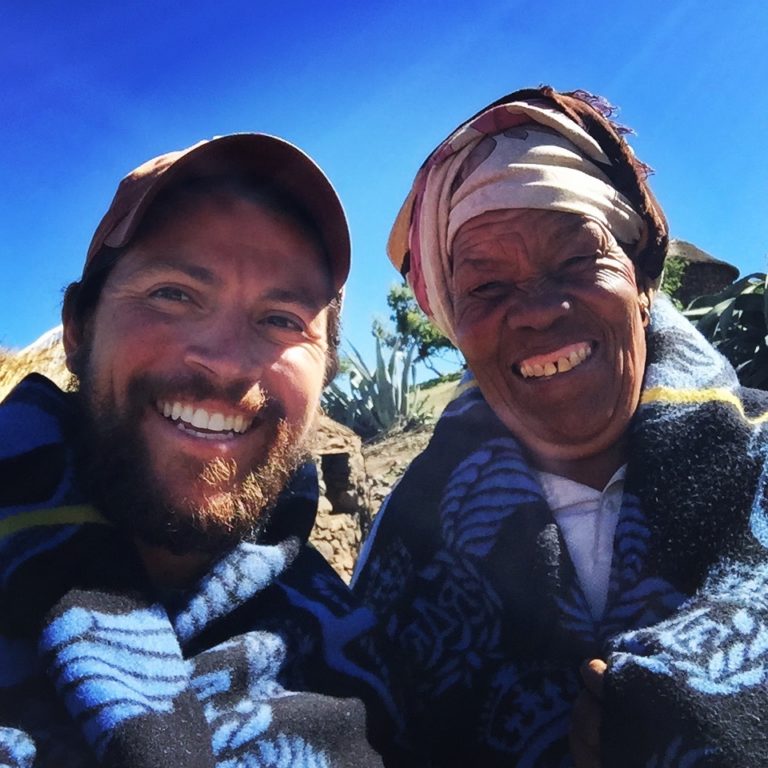
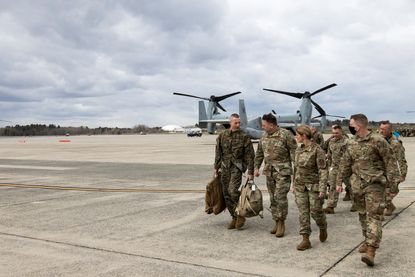
Tucceri in Lesotho during his two years in the Peace Corps, and at the 65th Press Camp Headquarters during his time with the National Guard.
Photos courtesy of Kenneth Tucceri
“The hardest thing by far that I have ever done was the day I left [Lesotho]. It was the saddest and most painful thing, and that’s good,” Tucceri said. “The people of Lesotho are the most accommodating and kind people I’ve ever encountered — it’s amazing.”
While in Lesotho, Tucceri was the only native English speaker in his rural village. But he went there seeking a challenge.
“If you go and just complete your objective for two years [that is fine],” Tucceri said. “But if you go and develop friendships and relationships, then a part of you will be there forever.”
He said one of the lessons he’s learned is that the biggest risks he’s taken have led to the biggest rewards.
“I would have never joined the National Guard without that initial step, and I would have never joined the Peace Corps if I didn’t join the military,” Tucceri said. “A friend I made while stationed in Cuba had done the Peace Corp and the Navy. I thought it was the coolest thing, and that I had to outdo him,” he said, jokingly.
Back home, Tucceri is preparing to graduate from Harvard Extension School and working closely with the members of his unit on pressing community needs.
Once he finishes his museum studies program, he hopes to work for the National Park Service (where he did an internship when he was in Florida) or the Smithsonian, some place where he can make use of his skills as a teacher and a storyteller, and his desire to help others find their own passionate commitment.
“[Museums] have a really unique part in our society,” he said. “They are a place people can get necessary primary source information, to tell the stories that are there that can inspire people and guide them through life and elevate their potential.”
And if his own story can help someone else along the way so much the better.
“Over the years I’ve adopted an attitude that I’m going to do [something] because no one is going to stop me, and I hope that inspires someone else,” he said.
This story is part of the To Serve Better series, exploring connections between Harvard and neighborhoods across the United States.
